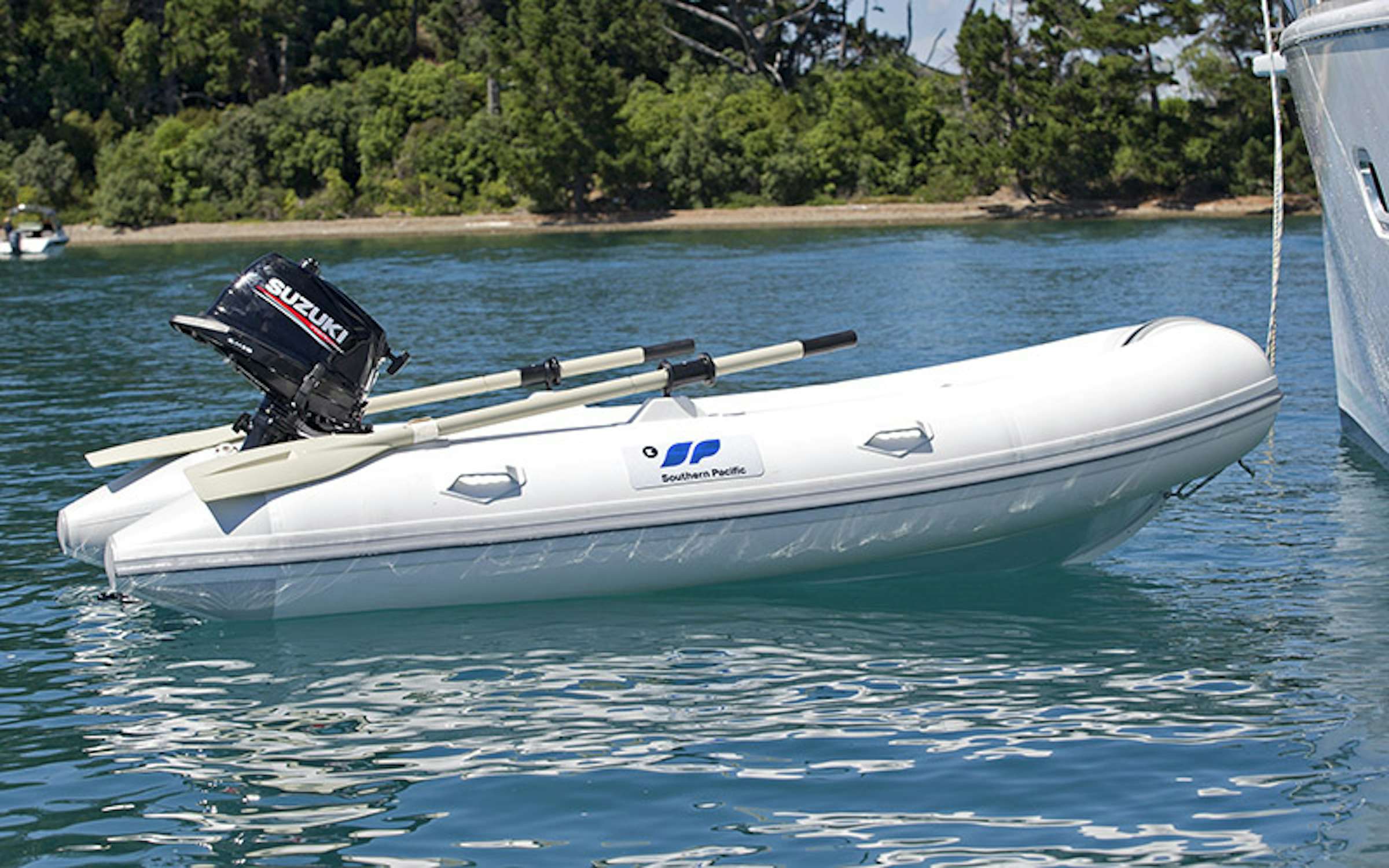
An inflatable, anyone?
An inflatable, anyone? Boaters new to the inflatable boat market will, most likely, be amazed at the wide variety of choices available.
Given that’s the case, if you’re contemplating buying an inflatable or RIB (Rigid Inflatable Boat) you may want to ask yourself some key questions before making a purchase. Questions like…will you be using your inflatable primarily as a runabout, or for sporting activities? Will you spend more time in small, sheltered bodies of water or out on the open seas? How do you plan on storing and launching your boat? Those kind of questions. These are all addressed on the Discover Boating website. Answering these will help determine what kind of inflatable is right for you.
The wise people at Discover Boating say an early question that needs addressing is, how many passengers do you think you will be catering for? Many inflatable models can carry between four and eight passengers. For those boating enthusiasts who need a larger capacity, RIBs are typically a better choice, the website advises. Some can hold as many as 15 people. “Remember too that the size and weight of the inflatable will affect its performance. Larger inflatables typically perform better, with improved stability and comfort, and faster planing.”
The site takes on board (so to speak) various associated considerations like how to choose an outboard, how to select a floor and hull etc. And it looks at the top seven “inflatable advantages” that appeal to recreational boaters. These include safety, buoyancy, mobility, fuel efficiency, a smooth and dry ride, simple maintenance and aesthetics.
Despite all those good points, if, at the end of the day, you’re unsure that an inflatable’s the right option for you then rest assured (the Discover Boating site says), in recent years manufacturers have made tremendous strides in developing user-friendly, comfortable, stylish models with all the amenities recreational boaters enjoy. The flat bottoms of the boats allow them to be used in very shallow water, such as a river, but the boats are still perfectly suited to lakes and the ocean.
And, if you need other advantages, they are cheaper to buy than fibreglass and aluminium boats and are cheaper and easier to repair if damaged. And how good are they when it comes to storage? They are easily deflated to allow convenient storage in the garage or in the back of the car.
The West Marine website includes a buyers guide to buying an inflatable boat. It tells us there are four main considerations and they are as follows:
- Decide if you want a boat that can plane. (Do you want to go fast?)
- Choose the floor construction that best balances portability and performance.
- Select the right fabric for where you will use the boat.
- Buy the biggest boat that fits within your budget and space requirements.
The site includes questions to help with decision-making, videos, and technical information around UV and chemical resistance, air holding ability, and fabric types, for example.
People have different reasons for considering an inflatable boat - like ferrying people, or fishing from, for example. The writer on My Inflatable Boat website shares his story, giving a sure indication of the pleasure to be found. He takes his boat with him when he, and his partner, travel with their truck and camping trailer. It adds another dimension of fun, plus they’re already towing a trailer, so the inflatable nature of their boat works for them.
But, of course, not everyone deflates their inflatable. The Without a Hitch website includes a guide to trailering inflatable boats.
Inflatable boats are easy to transport because they’re light, but that can also cause problems, the website tells us.
“They’re more prone to bouncing and since the heaviest part is usually the motor, particular care needs to be taken to ensure it doesn’t hit the ground or exert pressure on the transom.
“As a minimum, a trailer for inflatable boats needs front bow support, tie-down points, carpet skids or bunks, a winch, and keel rollers.”
When towing an inflatable there’s a need to support the tubes, transom, and motor (have a read to learn how best to do this), and reduce movement.
In terms of reducing movement, be mindful that your inflatable boat will tend to bounce in transit, so it’s important to keep it firmly fastened to the trailer to reduce independent movement. The website says cam or ratchet straps are best (since they won’t slip) but do ensure they’re correctly rated for the weight of the boat.
Transporting an inflatable boat is not the same as transporting other boats, because it is susceptible to damage through excessive movement - both of the boat and its outboard motor. This website offers information around what you can do to ensure your inflatable boat trailer gets you to the water and home again safe and sound.
Looking for the right cover on the water in New Zealand in 2022?
No matter what your plans are on the water in 2022, Mariner Insurance is here to support you. We have been offering Kiwis specialist marine insurance in New Zealand for over a decade with cover for all types of boats and watercraft. Just talk to us about what you’re doing on the water, and we can tailor one of our insurance policies to fit.